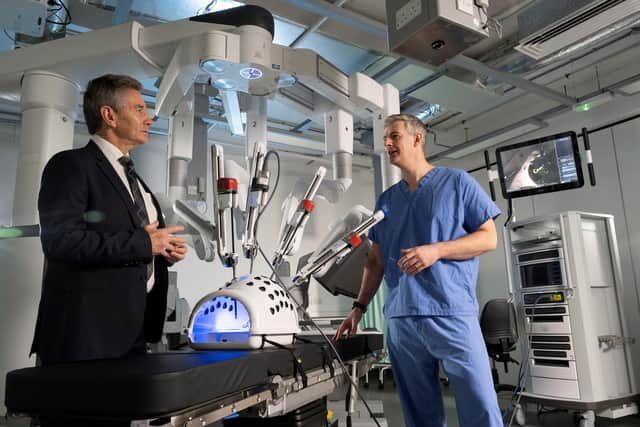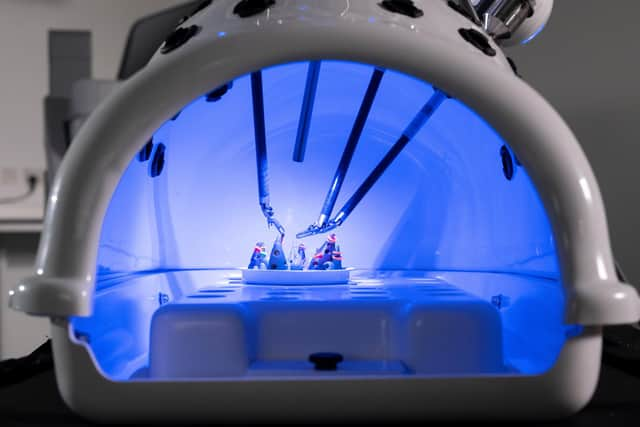Edinburgh to be home to robotic surgical training hub for Scotland
and live on Freeview channel 276
The Capital is now home of a revolutionary new surgical training hub for robotic surgery system that is set to transform the way cancer operations are carried out.
The Royal College of Surgeons of Edinburgh will house the state-of-the-art robotic technology at its Nicolson Street headquarters, where training on the new system will be delivered to surgeons from all over Scotland, as well as the North of England and mainland Europe.
Advertisement
Hide AdAdvertisement
Hide AdTraining on da Vinci sytstems, which are in place in hospitals across Scotland, will now take place in the Capital.


Predominantly used in cancer surgery, the systems have the ability to access hard to reach areas of the body, such as the pelvis, chest, and oral cavity, meaning surgeons can undertake extremely precise procedures using small incisions.
Professor Michael Griffin OBE, President of the Royal College of Surgeons of Edinburgh, said: “I’m delighted the College is playing such a vital role in the implementation of this revolutionary new surgical technology.
“Robotic-assisted surgery is becoming increasingly important in the surgical treatment of cancer, and the techniques that are possible using this kind of technology are hugely beneficial to patients, with the potential to significantly reduce time spent in hospital.
Advertisement
Hide AdAdvertisement
Hide Ad“We look forward to becoming an international training facility and truly putting Scotland at the forefront of surgical advances.”


Mr Campbell Roxburgh, Senior Clinical Lecturer based at the University of Glasgow and Chair of the National Planning Robotic-Assisted Surgery Clinical Reference Group, said: “As I can testify from my own experience, the benefits to patients of minimally-invasive cancer surgery made possible by robotic devices are manifest. That’s why the creation of this new surgical training facility – in swift succession to the investment in robotic assisted surgery by NHS Scotland – is so important.
“Scotland is establishing itself at the forefront of these developments. This facility will help to train a nation of Scottish surgeons seeking to specialize in robotic-assisted surgery, delivering benefits to Scottish patients and enabling us to become self-sufficient in training and implementation of robotic surgery. We should aim to be seen in the rest of the UK and further afield as a centre of excellence for training surgeons both here and beyond our shores.”
The da Vinci Surgical Systems are produced by Intuitive, a global technology leader in minimally invasive care and the pioneer of robotic-assisted surgery.
Advertisement
Hide AdAdvertisement
Hide AdThe provision of the technology training on the da Vinci Surgical Systems will enable surgeons to gain a deep understanding of how to use the technology, including camera control, retraction and arm control, suturing and instrument insertion.
The increased number of da Vinci systems in Scotland means robotic-assisted surgery can now be offered to more patients and a wider range of cancer and benign procedures, including colorectal, gynaecological, urological, and head and neck cancer among others.
The new da Vinci Xi surgical systems will be based in NHS Greater Glasgow and Clyde, NHS Lothian, NHS Tayside, NHS Grampian, NHS Fife, NHS Golden Jubilee and NHS Highland.